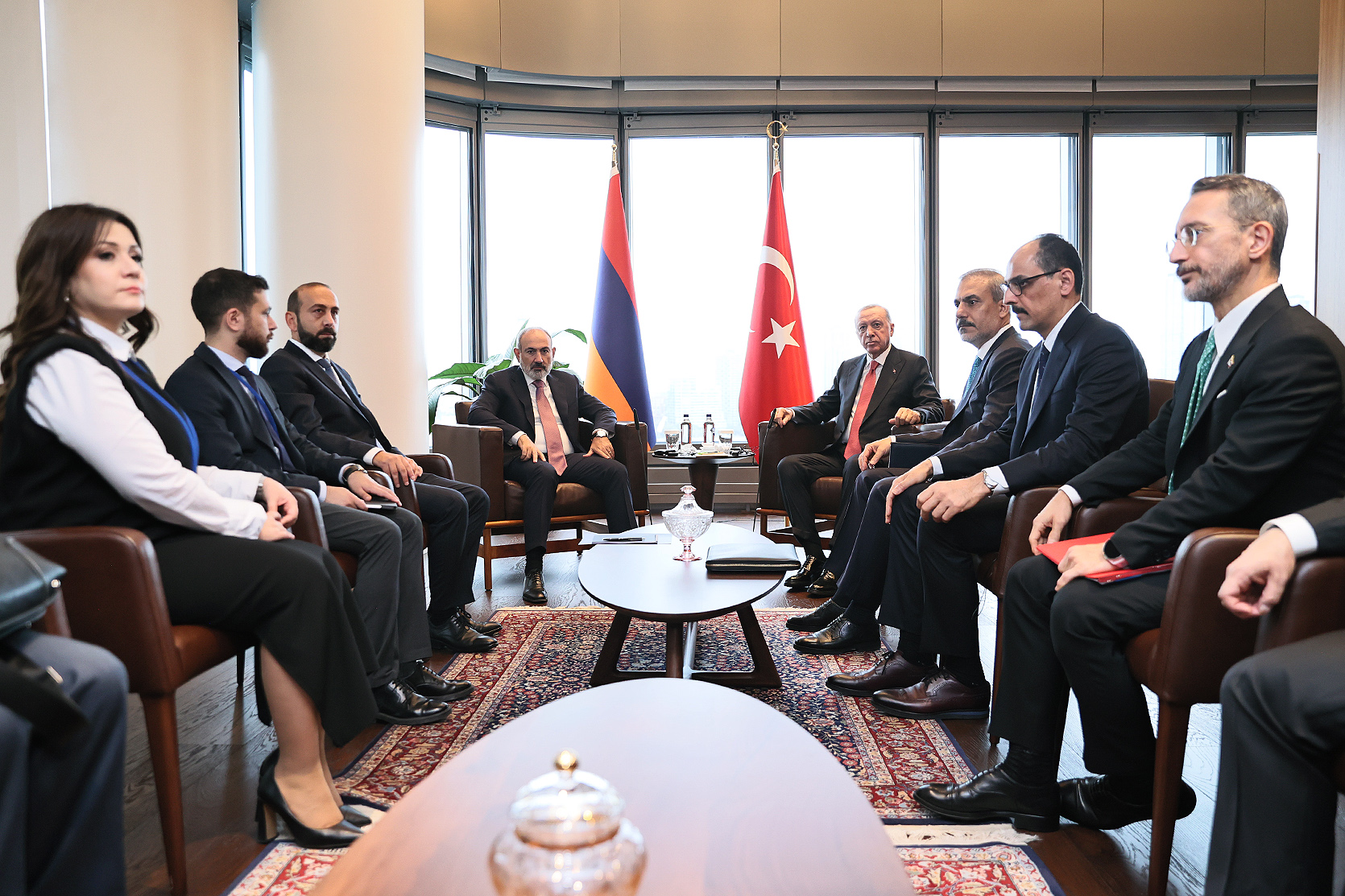56% of Armenians back a peace deal with Azerbaijan: IRI survey
IRI survey in Armenia
According to a survey conducted by the International Republican Institute (IRI) in Armenia, 56% of respondents support the signing of a peace agreement with Azerbaijan. Of these, 31% fully support it, while 25% support it to some extent. The survey was conducted from September 13 to 25.
At the same time, 38% of respondents consider peace with Azerbaijan a desirable but unattainable goal, while 33% view it as both undesirable and unattainable.
Recently, officials in Baku have frequently stated that Armenia’s constitution is the main obstacle to signing an agreement. They claim it contains territorial claims against Azerbaijan. However, a significant portion of Armenian citizens who support the normalization of relations (40%) oppose any changes to the country’s constitution.
Armenia’s Constitution does not contain any provisions that could raise concerns about territorial claims. However, it does reference the Declaration of Independence, which mentions the joint resolution of the Supreme Soviet of the Armenian SSR and the National Council of Nagorno-Karabakh from December 1, 1989, “On the Reunification of the Armenian SSR and Nagorno-Karabakh.” Yerevan considers any changes to its constitution to be a domestic matter.
- “Baku wants Yerevan to acknowledge its hegemony” – Armenian political analyst
- “Kremlin is depriving Georgia and Armenia of European future” – Armenian expert
Armenian society is not ready for concessions
According to 76% of participants in an IRI survey, the current state of Armenian-Azerbaijani relations is very poor. Additionally, 87% view Azerbaijan as a political threat.
When it comes to achieving peace with Azerbaijan, 80% of respondents are unwilling to make any concessions.
Only 3% are ready to make concessions in the process of border delimitation, and just 1% consider the withdrawal of Armenians from Nagorno-Karabakh and granting Azerbaijan a “corridor” through Armenian territory as acceptable concessions.
Turkey is also seen as a “political threat to Armenia”
Armenia’s relations with Turkey are described as “very poor” by 45% of respondents. Another 27% consider them somewhat poor, while 22% rate the relations as somewhat good. Only 3% believe that Armenian-Turkish relations are at a very good level.
According to 79% of respondents, Turkey poses a political threat to Armenia, while 5% see it as a political partner and 2% consider it a security partner.
As for the opening of the Armenian-Turkish border, 42% of respondents are strongly opposed, while 18% fully support the process.
Among the advantages of opening the border, 65% cited potential economic growth. However, the majority (46%) are concerned that “Turks and Azerbaijanis will be able to freely enter and leave, which is unsafe.”
Russia or the West: questions about Armenia’s foreign policy direction
31% of survey participants believe that the country’s foreign policy should be pro-Western, but Armenia should also maintain relations with Russia. Only 20% favor strengthening ties solely with the West.
The same percentage supports pursuing a strictly pro-Russian policy while maintaining relations with the West.
However, only 6% expressed support for a unilateral pro-Russian policy.
Most Armenians favor joining the EU
Since September 16, a petition drive has been underway in all municipalities of Yerevan and regions of Armenia to hold a referendum on Armenia’s membership in the European Union. This initiative comes from the “Platform of Democratic Forces.”
To bring the proposal to parliament’s agenda, 50,000 signatures needed to be collected by November 14. The required signatures have already been gathered ahead of schedule.
According to the results of a survey conducted by the International Republican Institute, the majority of Armenian citizens support EU membership.
The question posed was: “If a referendum on Armenia’s membership in the European Union were held next Sunday, how would you vote?” 58% of respondents said they would vote in favor.
Respondents cited strengthening security as the primary advantage of joining the EU (40%).
They were also asked about the “main drawback” of EU membership. 28% were unsure. The rest chose the following options:
- Deterioration of Armenian family values – 22%
- The EU will not help, it will be unsafe, Armenia will not be supported, they are unreliable partners – 21%
- Increased security threat from Russia – 12%
- Negative impact on the economy – 6%
61% do not trust any politician or public figure
Armenian Prime Minister Nikol Pashinyan is trusted by 16% of respondents. Compared to the previous IRI survey conducted in early 2023, Pashinyan’s rating has increased by 2%.
Foreign Minister Ararat Mirzoyan and the leader of the “Republic” party, Aram Sargsyan, each received 4% support. Parliamentary Speaker Alen Simonyan and former Armenian President Robert Kocharyan were trusted by 2% of respondents each.
Additionally, 29% stated they would not vote for any political party or force in Armenia.
When asked which party or bloc they would vote for if parliamentary elections were held next Sunday, 20% said they would vote for the ruling “Civil Contract” party. In 2023, 17% had expressed readiness to vote for the prime minister’s party.
2% said they would support the Republican Party of Armenia, led by former President Serzh Sargsyan, while another 2% would vote for the opposition bloc “Hayastan” (Armenia), led by former President Robert Kocharyan.
From security to the economy: the country’s key issues
The overwhelming majority of respondents (41%) identified national security and border protection as the most pressing issues for the country. Meanwhile, 14% believe the biggest problem is unemployment, and 10% cite high prices.
Additionally, Armenians are concerned with resolving the following problems:
- Poor quality of education
- Low wages
- Strengthening the military
- Government negligence and the weak team of current authorities
- Political instability
- Incorrect foreign policy direction.
Follow us – Twitter | Facebook | Instagram
IRI survey in Armenia





















